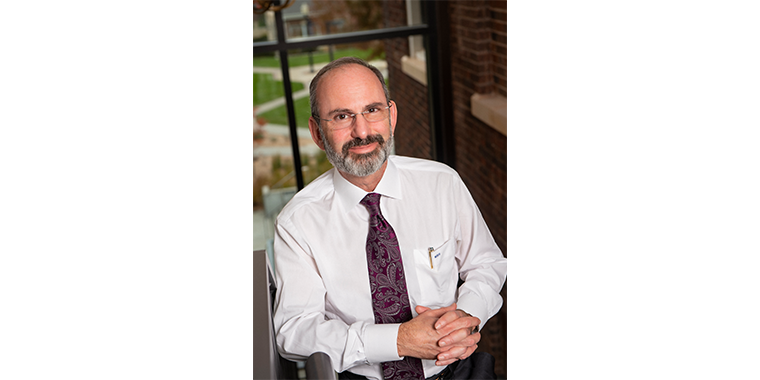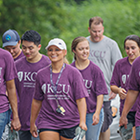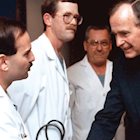As the health care workforce faces unprecedented pressures, national leaders are uniting to address burnout, resilience and well-being for clinicians across all disciplines. Dr. Marc B. Hahn, President and CEO of Kansas City University (KCU), was recently appointed to the National Academy of Medicine’s (NAM) Clinician Well-being Steering Committee, representing the American Association of Colleges of Osteopathic Medicine (AACOM). In this conversation, Dr. Hahn shares why this work matters.
Q: Dr. Hahn, congratulations on your appointment. What does this role mean to you?
A: Thank you. I’m deeply honored to have been recommended by Dr. Robert Cain, President and CEO of AACOM, and to have the opportunity to serve on the NAM Clinician Well-being Steering Committee. Representing the osteopathic medical education community on a national stage is both humbling and energizing. This is a chance to contribute to solutions that protect and promote the well-being of the very people who care for our communities — a mission that resonates deeply with me and aligns perfectly with the KCU commitment to improving the well-being of the communities we serve.
Q: You’re the only osteopathic physician (DO) on the committee. Why is that significant?
A: The osteopathic medical philosophy emphasizes whole-person care — seeing the patient in the context of their life, community and environment. That same approach applies to our health care workforce. Clinician well-being isn’t just about preventing burnout; it’s about understanding the full spectrum of factors that affect a provider’s mental, emotional, spiritual and physical health. Being the only DO on the committee allows me to bring that holistic perspective into national policy and systems-level discussions. Additionally, 26% of all medical students in the United States today are in DO granting programs representing an ever growing percentage of practicing physicians in the future.
Q: What are the committee’s priorities right now?
A: The NAM Clinician Well-being Steering Committee is focused on advancing a coordinated, national response to the challenges facing health care workers. We meet regularly to assess progress, share lessons learned and refine strategies that have come out of NAM’s longstanding work — such as the National Plan for Health Workforce Well-Being. Our priorities include scaling up proven interventions, addressing systemic causes of burnout and ensuring that well-being is embedded into the culture of health care, not treated as an afterthought.
Q: How has your experience in academic medicine shaped your contributions to the committee?
A: At KCU, I see firsthand the importance of preparing future physicians, dentists, psychologists, health professionals and biomedical scientists not only with relevant clinical or research skills but also with the resilience to thrive in challenging environments. My career has also taken me to leadership roles at the University of New England and the University of North Texas Health Science Center, where I learned the importance of supporting providers in both rural and urban settings. These experiences reinforce for me that clinician well-being is not a “nice to have”— it’s a foundational element of health system performance, community health and patient outcomes.
Q: Why is this work so urgent right now?
A: Health care professionals are navigating rising patient volumes, staffing shortages, administrative burdens and moral distress. These pressures were intensified by the COVID-19 pandemic, but they didn’t start there. If we don’t act now to address these systemic issues, we risk losing an entire generation of talented, compassionate clinicians. That would have ripple effects on patient outcomes, community health and public trust in the health care system.
Q: What do you hope to accomplish during your time on the steering committee?
A: My goal is to help advance sustainable, meaningful change that improves clinician well-being for the long term. That means contributing the ‘holistic’ osteopathic voice to the conversation, ensuring that policies and initiatives account for the human side of health care, and building bridges across disciplines. I want to see a health care system that doesn’t just treat illness but actively supports and sustains the people who make healing possible.
Closing reflection
The National Academy of Medicine, AACOM and Kansas City University share a belief that a thriving health care workforce is essential to a healthy society. By working together, and by keeping clinician well-being at the center of health care reform, we can build a system where both patients and providers flourish.

_20240923231253_0.png?w=140&h=140)


(0) Comments